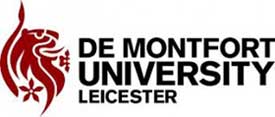About Pharmaceutical Biotechnology Msc/pg Dip/pg Cert in De Montfort University
Pharmaceutical Biotechnology is a rapidly expanding field focusing on the development and production of biopharmaceuticals that could lead to cures for many major diseases.
Globally, pharmaceutical biotechnology courses are rare and no other course offers such a broad scope where, as well as theory, you’ll be able to develop your skills with a key focus on practical content, studying pre-clinical studies, clinic and marketing that will help prepare you for a diverse career in either industry or academia.
Study an interdisciplinary subject based on the teaching and research expertise of our experienced practitioner and research-based staff. Our research is driven by societal strategic priorities and fully aligns with the United Nations Sustainable Development Goals. Areas of expertise include Pharmaceutical Technologies and Nanomedicine, Pharmacology and Neuroscience and Infectious Disease research.
Benefit from major investment in state of-the-art laboratories and specialist equipment to match that used in the best industrial laboratories. This includes FACS analysis, confocal microscope, electron microscope, mass spectrometer, fermentation units and tissue culture suites.
Key features
- Our reputation of more than 100 years’ pharmacy teaching ensures we produce graduates of the highest calibre.
- Benefit from major investment in state-of-the-art laboratories and specialist equipment at par to that used in industry.
- Learn from a combination of unique academic expertise across faculties by sharing one core module with students on a Master of Business Administration (MBA), broadening understanding around the importance of business in this area.
- International and UK students have benefited from this established course and progressed to PhD study and global relevant employment in the biotech sector.
- Study a range of specialist modules allowing you to receive up-to-date subject matter on multiple protein expression systems.
- Many of our graduates have progressed on to study for PhDs or work in roles in the biotech sector in both the UK and overseas.
Entry criteria
- An honours degree (2:2 minimum) in a relevant subject such as in a bioscience or science including pharmacy, biology, biochemistry, biotechnology, chemical engineering, chemistry, microbiology or molecular biology (or equivalent)
- Alternatively, a portfolio of professional and/or academic qualifications of equivalent standing to an honours degree
English language requirements:
If English is not your first language an IELTS score of 6.5 or equivalent when you start the course is essential. English language tuition, delivered by our British Council accredited Centre for English Language Learning (CELL), is available both before and during the course.
De Montfort University Highlights
| Type of Institution |
Public |
| Campus Setting |
Urban |
| Endowment |
£1.17 million |
| Number of Campuses |
4 faculties |
| Number/Percentage of International Students |
23205 |
| Total number of Professors |
3240 |
| Student Satisfaction Rate |
86% |
| Graduate Job Rate |
97.3% |
| Number of Residence Vacancy |
Around 3000 |
| International fee |
Undergraduates- £13240 (annual) Postgraduates- £15950 (annual) |
| Number of Academic Programs |
UG, PG, Part time, distance, blended |
| Mode of Program |
Full time, distance and online |
| Average Graduate Salary |
19800 pounds a year |
De Montfort University The tuition fee (In GBP) for various programs is tabulated below:De Montfort University Average Cost
| Field of Study |
Avg.Fees |
| Art, Design and Humanities: |
£13,750 |
| Business and Law |
£13,750-£14,550 |
| Media |
£13,750 - £14,250 |
| Engineering |
£14,250 |
| Computing |
£14,250 |
| Health and Life Sciences |
£13,250 - £14,250 |
| Nursing BSc |
£14,950 |
De Montfort University The Average Tuition Fees and Other Expenses
| Expenses |
Estimated cost in pounds |
| Undergraduate tuition fee |
13,250- 14950 |
| Postgraduate tuition fee |
13600-15,900 |
| On campus accommodation |
5,000-6040 |
| Average cost of living |
97-110 per week |
DMU International Scholarship up to 1500 pounds
- TEF Gold Outstanding Alumni Scholarship up to 3000 pounds
- Leicester Castle Business School Scholarships:
- Global MBA Scholarship £3,000 - £5,000
- Full Postgraduate Scholarship
- LGBTQ + Allies Scholarship-two fully funded post graduate taught scholarship packages including full fee weaver and maintenance bursary.
- Vice Chancellor's Sports Scholarship- three different scholarship packages are available with eligible students being awarded up to 6000 pounds of support.
